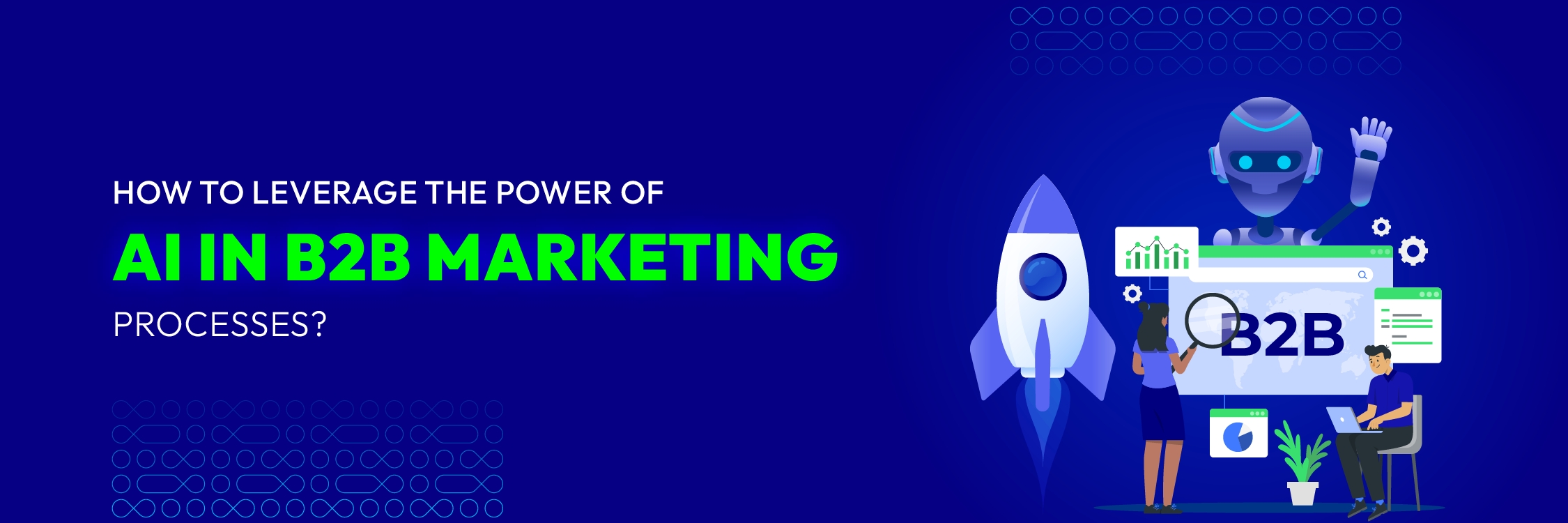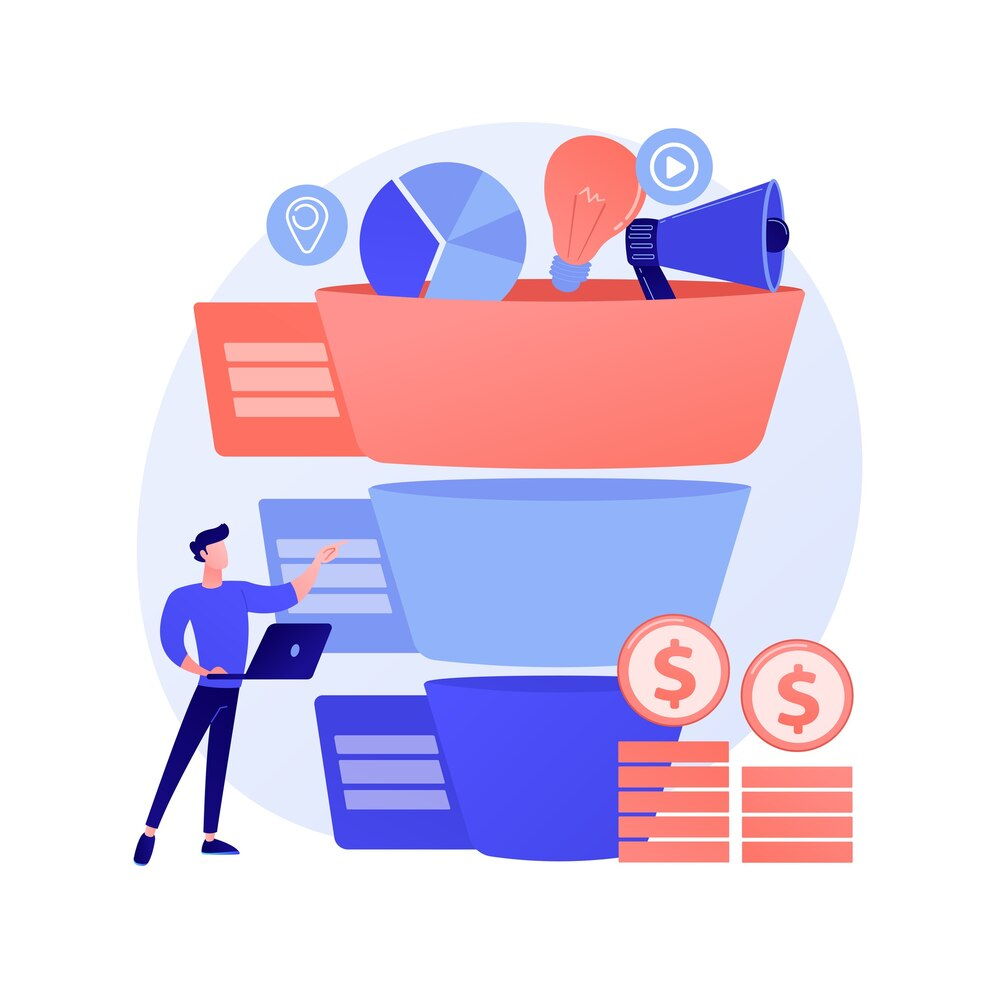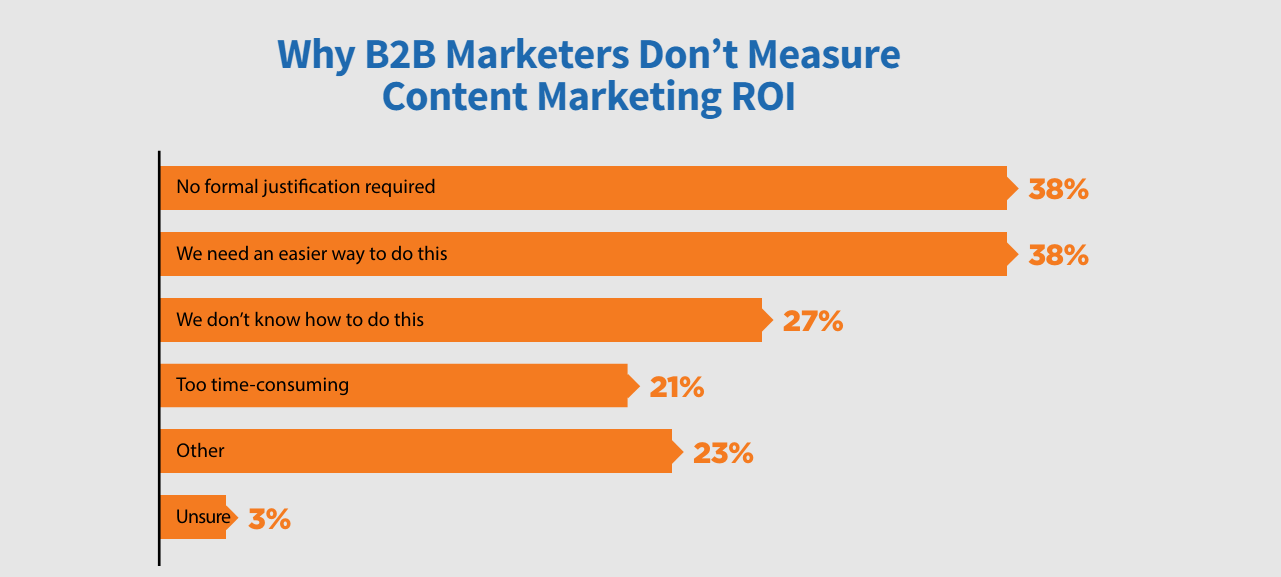Hyvä Theme is Now Open Source: What This Means for Magento Community - Mageplaza
Hyvä is now Open Source and free. Discover what changed, what remains commercial, how it impacts the Magento ecosystem, and how to maximize its full potential.

Are you a B2B marketer feeling bombarded by all the chatter about generative AI? You’re definitely not alone! Lately, Artificial Intelligence (AI) has been getting a lot of attention, but it can seem like a big mystery.
You might find yourself wondering: What exactly is AI? How can I use it effectively? Does it even apply to B2B marketing? You’re not alone in asking these questions, but fear not! In this comprehensive guide, we’re going to demystify AI in B2B marketing for you.
We’ll explore what AI is all about, how it fits into the B2B sales process, and the ways it can impact your marketing efforts. So, let’s dive in and uncover the secrets of AI in B2B marketing together!
When it comes to B2B marketing, the main goal is to make sales. But how do you actually make those sales happen? How to attract big clients? Traditional B2B marketing suggests using strategies like account-based marketing, lead generation, and personalization.
However, thanks to AI, there are now new and innovative ways to approach B2B marketing. In fact, 96% of executives say that generative AI is a hot topic in their boardroom discussions, indicating its growing importance in the field.
In B2B marketing, the aim is to tailor your approach through paid media strategies, CRM tactics, content marketing, and sales methods. Understanding your audience is key to sealing major deals. In the past, analyzing data in a B2B SaaS company required a team dedicated to number-crunching. Now, AI can handle this workload consistently.
Consider this scenario: you want to know when individuals with specific job titles interact with your ads, visit your page, and request a demo. Instead of relying solely on Salesforce dashboards for insights, you can automate the entire process. No more relying on surveys or customer interviews. AI provides high-quality data to inform effective marketing strategies.
This translates to reduced ad spending, higher Return on Ad Spend (ROAS), and clients with longer Lifetime Value (LTV). AI can uncover vital data for B2B marketing, such as which cohorts are likely to schedule a demo, which online customers are more inclined to engage, and the optimal times for B2B customer engagement to maximize success rates.
B2B marketers emphasize content for brand awareness because, in this realm, brand visibility directly correlates with sales. Content reigns supreme because it permeates every interaction with potential customers.
As a B2B marketer, you’re constantly producing marketing content like blogs, ebooks, and ad copy. This content is how your B2B business gets noticed. Adopting an AI platform like ChatGPT can greatly enhance your productivity and spur fresh ideas. Utilize generative AI tools to personalize your content, generate ad copy based on audience segments, or even assist in blog writing (but always remember to infuse it with a human touch).
AI-powered tools excel at analyzing extensive datasets to extract valuable insights into buyer behavior, preferences, and demographics. Leveraging these insights, B2B marketers can craft highly targeted and personalized content, significantly enhancing engagement and conversion rates.
Moreover, AI algorithms have the capability to forecast future trends and behaviors by analyzing historical data. In the realm of B2B marketing, predictive analytics play a crucial role in identifying potential leads and directing sales efforts toward the most promising prospects.
In essence, AI facilitates data analysis on a massive scale. It can swiftly and accurately process vast amounts of data, including website interactions, social media engagement, email interactions, and historical sales data. Through the aggregation and analysis of this information, AI can uncover intricate patterns and trends that might elude manual analysis.
Absolutely, in the realm of B2B, sales are paramount. B2B marketing plays a crucial role in constructing the B2B sales funnel. This funnel is designed to attract prospects through various channels, whether it’s through organic traffic, paid media campaigns, or outbound calls. The ultimate aim is to populate your sales pipeline with a steady stream of qualified leads, with the hope that they will eventually convert into paying customers.
Prospecting is indeed crucial, but understanding the desires of potential buyers can be challenging.
However, AI comes to the rescue by analyzing individual customer preferences and behaviors to provide personalized content recommendations. This level of personalization goes beyond mere addressing by name; it entails customizing the entire content experience to align with a customer’s specific interests and requirements.
With this personalized approach on a large scale, the sales team can effectively deliver tailored content and recommendations to a broad audience, thereby nurturing deeper connections with potential clients.
Thanks to predictive analytics, AI can delve deep into customer behavior and preferences, empowering your team to make informed decisions about each interaction. Moreover, the perennial challenge of dealing with incomplete or inaccurate data is now a thing of the past.
AI-driven tools automatically cleanse and enhance sales data. This encompasses tasks like eliminating duplicate entries, standardizing data formats, and filling in missing details. With clean and enriched data at their disposal, sales teams can confidently work with accurate and comprehensive information.
Furthermore, AI equips your B2B sales team with forecasting models that leverage historical sales data, market trends, and other pertinent factors to accurately predict future sales performance. These forecasts are invaluable for strategizing, resource allocation, and setting achievable sales targets.

Determining the likelihood of a prospective lead converting can be tricky, as it often involves uncertainties. However, AI comes to the rescue by assisting in lead scoring and qualification.
AI algorithms can automatically assess and prioritize leads based on their probability of conversion. This ensures that sales teams concentrate their efforts on leads with the greatest potential, thus boosting efficiency and conversion rates.
Moreover, AI can track leads and prospects as they progress through the sales funnel, offering insights into potential bottlenecks or drop-off points. Armed with this information, marketing efforts can be fine-tuned to optimize the sales process and enhance conversion rates even further.
AI’s power is indeed substantial, as evidenced by the significant benefits it offers to marketers. According to a survey, 58% of marketers whose companies utilize generative AI for content creation identified increased performance as the primary advantage. This indicates that by harnessing AI, marketing processes within your company can undergo remarkable improvement.
AI enables companies to scale their operations more efficiently than ever before. Tasks that would typically require significant time and resources can now be completed in a fraction of the time with AI. AI software can handle vast amounts of data, analyze numerous leads simultaneously, personalize messages at scale, and predict trends to help businesses stay ahead of the competition.
AI is constantly learning and evolving. Its algorithms continuously analyze data to optimize various aspects of marketing, such as paid media campaigns, identifying and addressing weaknesses in sales funnels, and minimizing drop-off points in customer journeys. By leveraging AI, businesses can ensure that their marketing strategies and tactics are continuously refined and optimized for maximum effectiveness.
Implementing AI in B2B marketing requires careful validation and governance processes. Ensuring the reliability and compliance of AI-created capabilities and code poses a challenge, as the market needs time to develop experience in this domain.
AI-powered personalization demands extensive experimentation across content planning, development, and delivery phases. However, B2B marketers may struggle to allocate sufficient time and resources for experimentation, particularly when pressured to yield immediate results. Investing in experimentation and providing adequate testing environments is essential for successful AI adoption.
While AI promises highly personalized experiences, measuring and understanding their effectiveness poses a challenge.
Many B2B organizations lack advanced content measurement and intelligence capabilities, hindering their ability to leverage AI-driven personalized experiences effectively. In fact, 27% of B2B marketers reported that they don’t know how to measure content marketing ROI, which is an extremely important metric in content measurement.

Vendors that can deliver comprehensive reporting solutions will have a competitive advantage in providing actionable insights to businesses.
Artificial Intelligence isn’t merely a trendy term; it’s a game-changer in B2B marketing. By refining customer insights, automating tasks, and boosting sales team efficiency, AI empowers businesses to remain competitive and foster growth. As AI advances, its importance in B2B marketing will only grow.
Embracing this technology is no longer a choice but a vital step for businesses aiming to succeed in today’s digital era. So, dive into the realm of AI in B2B marketing now, and get ready to unlock the benefits of innovation and advancement.